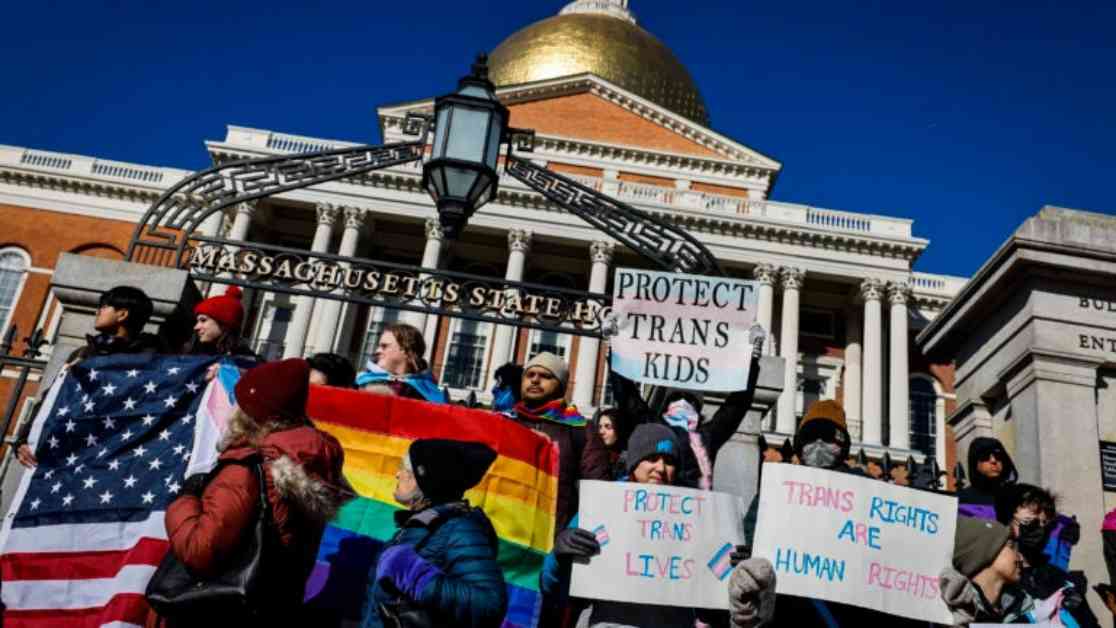Federal Judge in Boston Protects Trans Woman from Transfer to Men’s Prison
In a recent turn of events, “Maria Moe,” a transgender woman incarcerated in Massachusetts, has been granted temporary relief by a federal judge in Boston. This decision came after President Donald Trump issued an executive order targeting “gender ideology extremism,” which aimed to prevent transgender individuals from being housed according to their gender identity and restrict federal funds for gender-affirming care.
The lawsuit filed by Moe under the pseudonym “Maria Moe” challenged Trump’s order, which led to her removal from the women’s prison’s general population where she was initially housed. Following this development, she was placed in a special housing unit and faced imminent transfer to a men’s facility. The potential consequences of this transfer included exposure to harassment, abuse, violence, and sexual assault, issues that were highlighted by her legal representatives.
Legal Battle and Human Impact
Judge George O’Toole intervened by issuing a temporary restraining order to prevent Moe’s transfer and uphold her current placement while considering a longer-term injunction against enforcing Trump’s directive. This legal battle has underscored the vulnerability and challenges faced by transgender individuals within the prison system, particularly concerning safety, access to medical care, and protection from discrimination.
Moe’s personal journey as a transgender woman, starting from her adolescence when she began hormone therapy, paints a poignant picture of the struggles faced by many individuals grappling with gender dysphoria. Her classification as female by prison officials until the recent order exemplifies the impact of policy changes on the lives of marginalized communities.
Expert Insights and Advocacy
Jennifer Levi, a senior director at GLAD Law, emphasized the significance of O’Toole’s decision in ensuring Moe’s safety and well-being. Levi condemned Trump’s executive order as a direct attack on transgender Americans, highlighting the detrimental effects on their legal recognition and protection. This case serves as a critical juncture in the ongoing battle for transgender rights and inclusion in society.
As the legal proceedings unfold, the broader implications of Trump’s order on incarcerated transgender individuals are being closely monitored. The intersection of legal, medical, and social factors in determining the appropriate treatment and housing of transgender prisoners underscores the complexities of this issue and the need for comprehensive, inclusive policies.
Abby Patkin, the reporter covering this story, encapsulates the multifaceted nature of Moe’s case, touching on issues ranging from public safety to personal identity. The human impact of policy decisions on individuals like Moe sheds light on the importance of legal advocacy and community support in protecting the rights of marginalized populations.
In conclusion, the legal battle surrounding Moe’s case represents a crucial moment in the fight for transgender rights and equality. By amplifying her voice and advocating for her safety, the legal team and supporting organizations are paving the way for a more inclusive and equitable society, one that upholds the dignity and rights of all individuals, regardless of gender identity.






